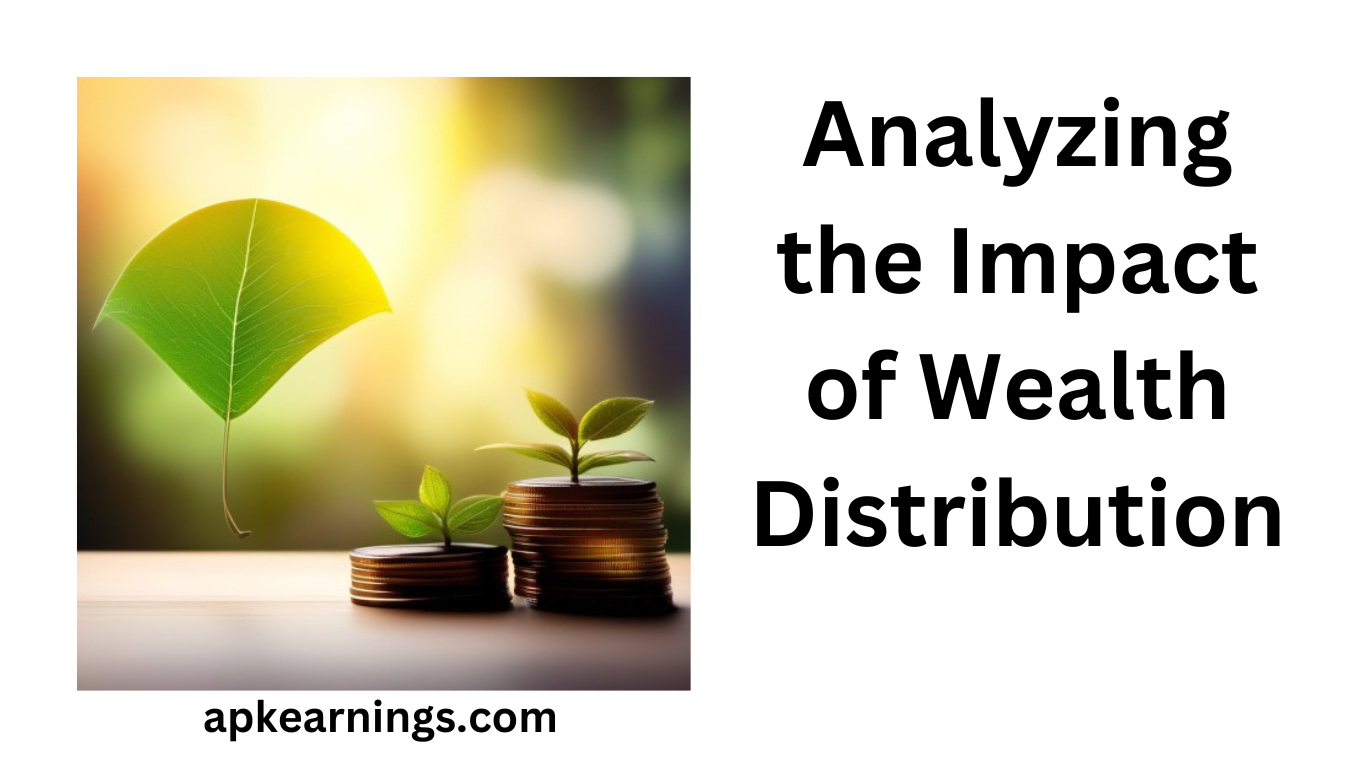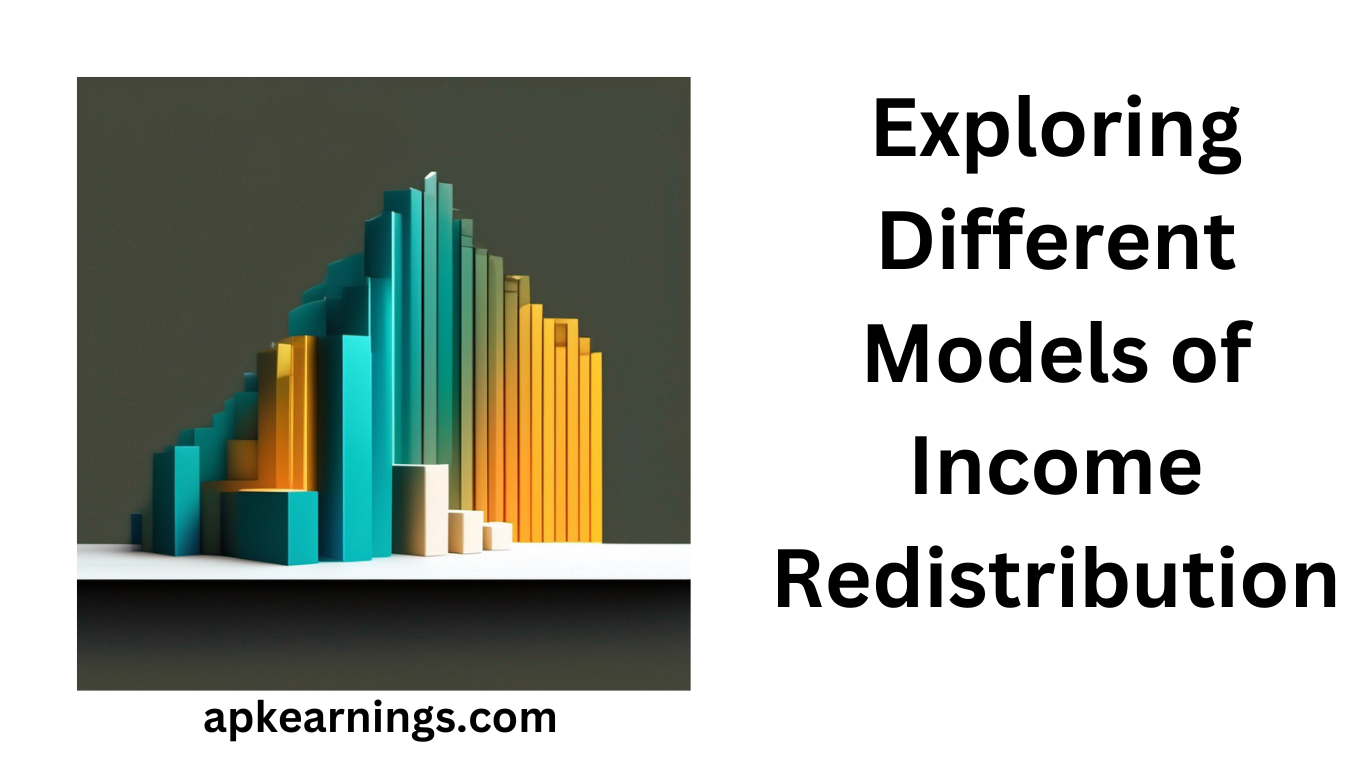The Concept of Financial Redistribution
In the Money Spreading Spreading perplexing realm of modern society, the notion of financial redistribution has garnered considerable attention. It revolves around the intricate allocation of resources with the lofty goal of mitigating economic disparities and nurturing a more just and unbiased community. At its very core, this concept challenges the prevailing status quo by advocating for a departure from wealth concentration in the hands of an elite few, instead emphasizing widespread dissemination amongst all members of society. The propagation of this ideology regarding fiscal diffusion has occupied center stage in impassioned debates surrounding social welfare, economic equity, and sustainable advancement.
This multifaceted concept encompasses an array of policies and strategies aimed at redressing economic inequality. By way of progressive taxation mechanisms and robust social welfare initiatives, financial redistribution endeavors to ensure that individuals and communities gain equitable access to resources and opportunities capable of enhancing their well-being prospects. This concerted effort to redistribute wealth holds profound potential in bridging the ever-widening chasm between affluence and poverty while simultaneously fostering upward mobility within societal strata. Consequently, it engenders a palpable sense of justice, inclusivity, and fairness among diverse cohorts. In effectuating effective financial redistribution practices lies the promise for cultivating a harmonious economy characterized by equilibrium – where every individual possesses an opportunity to flourish harmoniously whilst actively contributing towards communal prosperity as a whole money spreading.
Analyzing the Impact of Wealth Distribution

The analysis of wealth distribution has a perplexing effect on our understanding of how societies function economically and socially. It delves into the intricate ways in which financial resources are allocated among individuals and households. This allocation plays a pivotal role in determining the opportunities that different segments of society have access to, as well as the overall well-being of communities. As money is distributed unevenly across various socioeconomic groups, we witness the burstiness of its impact in education, healthcare, housing, and employment disparities. These discrepancies can exacerbate inequality, hinder upward mobility, and deepen societal divisions.
Research has uncovered the far-reaching consequences that stem from an imbalanced distribution of wealth at both an individual level and on a larger scale within society. Unequal wealth distribution restricts individuals’ access to crucial resources and opportunities Money Spreading, perpetuating cycles of disadvantage while impeding social and economic progress. On a broader spectrum, societies characterized by high levels of inequality typically experience diminished economic growth and stability due to concentrated wealth’s adverse effects on consumer demand, investment in human capital deficiencies, and weakened social bonds. Additionally, such unequal distribution also fosters heightened social tensions alongside political instability as economic power disparities become more pronounced. A thorough comprehension and proactive efforts aimed at addressing this impact are thus paramount for nurturing greater economic equity while fostering social cohesion.
Understanding Economic Inequality and Its Consequences
Economic inequality, a perplexing and bursty phenomenon, encompasses the distribution of wealth, Money Spreading, and resources which unequally permeate through individuals or groups within a given society. Its intricate nature yields profound repercussions for both the affluent and disadvantaged populace alike. The chasm between those endowed with abundance and those bereft of it not only impinges upon the quality of life experienced by individuals but also engenders consequential ramifications concerning social cohesion, political dynamics, as well as overall economic progress.
One significant ramification arising from economic inequality is its contribution to perpetuating societal divisions. When a substantial segment of the population grapples with fulfilling their rudimentary necessities, an overwhelming sense of marginalization and exclusion takes hold. This unsettling state can incite social unrest while simultaneously fueling an upsurge in crime rates while eroding trust in established institutions. Conversely, excessive concentration of affluence may breed an unwarranted sense of entitlement that reinforces prevailing power imbalances thereby exacerbating existing social disparities even further. Henceforth, comprehending the multifarious consequences underpinning economic inequality remains indispensable when formulating strategies aimed at rectifying this pervasive malady affecting our societal fabric.
Exploring Different Models of Income Redistribution

An intriguing approach to the redistribution of Money Spreading that has been gaining momentum in recent years is the concept of a progressive tax system. This innovative model entails levying higher taxes on individuals with larger incomes, while imposing lower tax rates on those with more modest earnings. The underlying objective of this strategy is twofold: to ensure that the weight of taxation falls predominantly upon those who possess greater financial means, and simultaneously extend essential support to individuals who find themselves at an economic disadvantage. By implementing a progressive tax structure, governments can effectively reconfigure wealth distribution patterns and foster a more balanced allocation of resources within society.
Alternatively, another avenue for achieving income redistribution lies in the realm of social welfare programs. These comprehensive initiatives are meticulously crafted to offer monetary assistance, vital resources, and unwavering support to individuals and families facing dire circumstances. Housing subsidies, unemployment benefits, and accessible healthcare coverage are just some examples of these multifaceted endeavors. The implementation of such socially conscious programs seeks not only to mitigate financial disparities but also to provide a sturdy safety net for those grappling with hardships in their daily lives. By judiciously allocating funds towards these altruistic ventures, governing bodies can lend a helping hand in alleviating poverty and fostering an environment where wealth is distributed equitably among all members of society.
The Role of Taxes in Redistributing Wealth
The enigmatic nature of taxes lies in their intricate role in the perplexing task of redistributing wealth within an economy. Through a system that is imbued with burstiness, governments can ensure that those who bask in the prosperity of higher incomes are compelled to contribute a larger proportion of their earnings towards funding public services and supporting those less fortunate. This labyrinthine approach seeks to alleviate income inequality by narrowing the chasm between the affluent and the destitute.
A pivotal facet of utilizing taxes as instruments for wealth redistribution resides in their capacity to generate revenue that can be deftly directed towards social welfare programs, education, healthcare, and infrastructure development. By imposing onerous tax rates upon individuals and corporations luxuriating in substantial Money Spreading, governments can amass funds imperative for investing in public goods and services that bestow benefits upon society at large. These financial resources, when adroitly employed with efficiency and efficacy, hold the potential to address economic disparities and cultivate a more equitably distributed array of opportunities and resources. Nevertheless, it remains crucial to strike an equilibrium between taxing the opulent elite so as to foster an equitable redistribution while ensuring that tax policies do not impede economic growth or dampen incentives for wealth creation.
Examining Government Policies for Wealth Redistribution

In the pursuit of addressing the ever-widening Money Spreading gap within society, governments have implemented a range of policies with the goal of redistributing wealth. One such policy is progressive taxation, an approach that involves placing higher tax burdens on individuals with greater Money Spreading compared to those with lower incomes. This strategy serves to generate additional revenue that can then be utilized for funding various social programs and initiatives, ultimately working towards narrowing the disparity in wealth distribution. Furthermore, governments have also introduced minimum wage laws as a means of guaranteeing workers receive a just and livable income. By establishing a baseline wage level, authorities aim to shield vulnerable employees from exploitation while simultaneously contributing to a more balanced allocation of resources.
However, it is worth noting that government efforts pertaining to wealth redistribution extend beyond mere taxation adjustments and minimum wage regulations. Social safety net programs represent another crucial facet in this endeavor; these encompass unemployment benefits, healthcare subsidies, and food assistance provisions which play an instrumental role in providing support for individuals and families facing financial hardships. The primary objective behind such initiatives revolves around alleviating poverty levels and reducing economic inequality by offering aid to those who find themselves most at risk or disadvantaged. Nevertheless, striking a harmonious equilibrium between supplying essential assistance and fostering self-reliance becomes imperative for governing bodies since an excessive reliance on social safety nets may inadvertently discourage work ethic whilst hindering long-term economic growth prospects.
Overall, well-conceived government policies aimed at efficiently redistributing wealth stand as pivotal factors when it comes to promoting fairer societies wherein prioritizing the equitable spreading of monetary resources takes precedence
The Benefits and Challenges of Universal Basic Income
The concept of Universal Basic Income (UBI) has emerged as an intriguing solution in the fight against economic inequality and poverty. It has garnered significant attention for its potential to provide individuals with a sense of financial stability, regardless of their employment circumstances. UBI offers a safety net, ensuring that all citizens have access to fundamental necessities like food, shelter, and healthcare. This transformative approach can uplift people from the depths of poverty and foster inclusivity within society. Furthermore, UBI possesses the power to unleash economic productivity by liberating individuals from low-paying jobs that stifle progress. It encourages them to explore higher education opportunities or embark on entrepreneurial ventures.
Nevertheless, the implementation of UBI is not without its perplexities and challenges. Foremost among these concerns is the hefty Money Spreading tag associated with financing such a program. The task of providing every citizen with a universal basic income demands substantial financial resources which may strain governments’ budgets and restrict investments in crucial sectors like education and healthcare. Detractors also argue that UBI might dampen work motivation among recipients, potentially leading to decreased productivity levels overall. With an assured income irrespective of employment status, there exists a legitimate worry that some individuals could grow complacent or choose not to actively seek employment altogether. Striking a delicate balance between maximizing the benefits offered by UBI while considering its potential implications on workforce participation requires thorough evaluation before embracing widespread implementation.
In summary, Universal Basic Income holds promise as an equitable means for combatting economic disparities and alleviating poverty’s grip on society’s most vulnerable members. Its ability to bestow financial security upon all citizens presents an opportunity for transformative change towards greater inclusivity and prosperity for everyone involved.
The Role of Philanthropy in Spreading Economic Prosperity
Perplexing and bursting with intrigue, philanthropy assumes an indispensable role in disseminating economic prosperity by bestowing financial resources upon those organizations and individuals who find themselves in dire need. Through these benevolent endeavors, both individuals and corporate entities have the power to contribute to the advancement of society and economy alike, tackling a myriad of societal quandaries. By channeling their monetary assets towards initiatives such as education, healthcare, and poverty alleviation, philanthropists serve as conduits bridging the gap between those endowed with abundance and those bereft.
In addition to its wealth-spreading prowess, philanthropy also serves as a catalyst for innovation while paving uncharted avenues for social mobility. The funds cascading through acts of charity can fuel research endeavours that pave the way for groundbreaking discoveries in science, technology, and medicine. This ripple effect invariably propels economic growth forward while elevating living standards within communities at large. Furthermore, charitable organizations often extend scholarships and grants to support individuals hailing from disadvantaged backgrounds—thus empowering them with access to higher education essential for unlocking the gates of economic success. With philanthropic forces propelling us forward into this perplexing realm of possibilities; prospects abound for achieving not just economic prosperity but also fostering an inclusive society where equity reigns supreme.
The Importance of Education and Skill Development in Wealth Redistribution
The significance of education and skill enhancement in the redistribution of wealth is immeasurable. In a society that yearns for economic parity, it is imperative to bestow individuals with the wisdom and proficiencies essential for triumph. Education not only grants people the means to secure higher-paying occupations but also cultivates their ability to think critically and solve problems, skills that are indispensable when navigating the intricacies of today’s financial terrain.
By investing in education and skill development, societies are not only granting individuals freedom from the relentless cycle of poverty but also fostering a more competitive and prosperous economy. When people have access to top-notch education, they become better poised to make meaningful contributions to society, thereby heightening overall productivity and innovation. Furthermore, education holds within its grasp the potential to narrow the chasm between affluence and destitution by enabling individuals to access well-compensated jobs and achieve monetary stability. By equipping people with knowledge and aptitudes crucial for success, education emerges as an influential instrument for disseminating wealth while encouraging economic mobility on a grander scale.
Case Studies: Successful Approaches to Money Spreading
In the relentless pursuit of economic equality, a myriad of case studies have emerged showcasing triumphant methods in disseminating wealth. An exemplary illustration lies within the realm of developing nations, where microfinance programs have flourished. These initiatives extend minuscule loans and financial services to those individuals and small enterprises who find themselves bereft of access to conventional banking systems. By endowing these marginalized entities with capital and financial acumen, microfinance programs have effectively engendered the genesis and expansion of their own business endeavors, ultimately culminating in heightened income levels and diminished poverty rates.
An alternative avenue leading to equitable Money Spreading wealth distribution manifests itself through community development financial institutions (CDFIs). Specifically tailored for disadvantaged communities that suffer from an absence of support by mainstream banks, CDFIs serve as vessels delivering affordable financial services and loans. However, their role extends far beyond mere transactional facilitation; they also proffer invaluable tutelage on fiscal education and counsel aimed at honing superior monetary practices. Embracing this all-encompassing approach towards money spreading has proven efficacious in promoting economic inclusivity while uplifting communities by catalyzing local economies and generating employment opportunities.
Such case studies offer tangible evidence shedding light on successful strategies for diffusing wealth. They underscore the paramount significance entrusted upon empowering individuals with both fiscal means and knowledge while simultaneously guaranteeing equal accessibility to financial amenities. Through embracing these approaches alongside targeted policies, societies can strive toward a more balanced dispersion of prosperity—an auspicious path paving the way toward a brighter future for all stakeholders involved.
for more …………. click here





